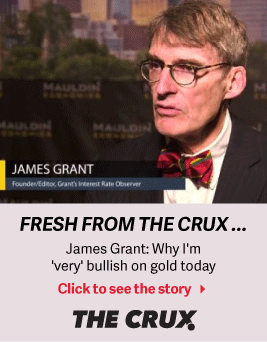| Home | About Us | Resources | Archive | Free Reports | Market Window |
The Five Types of Stocks You Must AvoidBy
Friday, June 3, 2016
It's the No. 1 lesson that will make you a superior investor...
Not losing money in stocks is more important than making it.
You can't compound dollars that have died and gone to money heaven.
It always feels like there's something new to buy in the stock market. Humans have a bias toward action. Doing something generally feels better than doing nothing.
Trouble is, doing nothing is the right thing to do in the stock market most of the time.
That's why today, I'm going to share with you the five main types of stocks you must avoid...
1) Expensive stocks
Most higher-quality businesses are too expensive today. S&P 500 companies aren't doing very well these days... So they play games with how they report earnings expectations. Hedge-fund manager David Einhorn says in his latest investor letter that S&P 500 earnings aren't as wonderful as companies reporting higher-than-expected results would have you believe...
2) Busted growth stories in tough industries
The restaurant business is among the worst for investors. It's a tough industry... Most restaurants fail. Look at sports bar and grill Buffalo Wild Wings (BWLD), for example – it's trading for a steep 20 times earnings. It suffers from falling same-store sales growth and a share price to match.
Most oil and gas stocks became busted growth stories when oil prices started plummeting two years ago. They were leveraged bets on high oil and gas prices, and the businesses simply don't work at today's prices. Many will still go bankrupt.
3) Financial engineering schemes running out of steam
When interest rates are low, financial engineering runs amok. Low debt costs become irresistible. Companies borrow larger sums than they otherwise would have to buy their own stock and other companies.
There are three primary types of financial engineering...
4) The end of speculative manias A speculative mania occurs when a group of stocks rises dramatically in price, usually to stratospheric valuations, based on the perceived novelty of the stocks. The Internet boom of the late 1990s is a perfect example. Fraud runs rampant during speculative manias and tends to come to light when the mania ends.
The "FANG" stocks – Facebook (FB), Amazon (AMZN), Netflix (NFLX), and Google (GOOG) – are popular with everyone from hedge-fund managers to individual investors. They're trading at absurdly high valuations... No matter what the business, numbers like these in companies this big are historically red flags.
5) Cheap garbage
This generally refers to stocks below $1 per share. The sub-$1 world is where failed public companies go to die, sometimes lingering on in obscurity for years. If you find leveraged oil and gas companies down there, run away with your hand on your wallet. The low share price is both a sign of extreme financial distress and a huge impediment to restructuring distressed loans.
The share price is essentially the market's recognition that the cash will likely burn up and shareholder value will be destroyed. That's not always the case... but that should be your working assumption until you find out otherwise.
No one knows exactly what the stock market will do tomorrow, or which stocks you should purchase for guaranteed gains.
But a smart investor must be aware of what kinds of stocks he should avoid. Sometimes the best move in the market is the one you don't make.
Good investing,
Dan Ferris
Editor's note: Dan focuses on finding great businesses trading for cheap prices in Extreme Value. He recently discovered a way to buy some of the world's most valuable real estate at an almost 50% discount. He has even called it "the perfect investment." Gain access to this recommendation with a 30-day, risk-free trial subscription to Extreme Value right here.
Further Reading:
"One of the secrets to finding the best investments is so simple and so obvious, most people don't pay attention to it," Dan says. But you could have used this secret to buy Microsoft for $4 a share in 1995... or McDonald's for $13 a share in 2003. Learn more here: Use This Simple Secret to Find the Best Stocks.
"Finance professors, advisers, and most brokers will tell you that to get market-beating returns, you have to take more risk," Dan writes. "That's not true at all." Get the story here: Our Strategy Beats the Market With Less Risk.
Market NotesANOTHER 'PICKS AND SHOVELS' WINNER As we explained yesterday, "picks and shovels" companies are one of the market's surest bets. Today's chart shows more proof of this theory at work...
You may not have heard of KLA-Tencor (KLAC) before. The company works with the world's biggest chipmakers (like Intel and Samsung) to improve production yields by reducing the number of defective chips. In other words, KLA-Tencor's products and services are a form of "insurance" for the semiconductor giants that invest billions of dollars to produce cutting-edge technology.
KLA-Tencor isn't betting on the next big technology or fad. It's simply providing its services and knowledge to the world's biggest chipmakers. These companies are in a constant race to make their chips faster and smaller. That keeps KLA-Tencor's business steady.
As you can see, KLAC shares are in an impressive uptrend. They're up 50% in just the last nine months and just hit a new 18-month high. Business is booming for the leading "picks and shovels" company in the semiconductor industry...
|
Recent Articles
|



